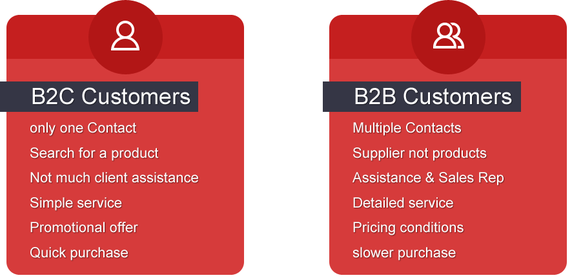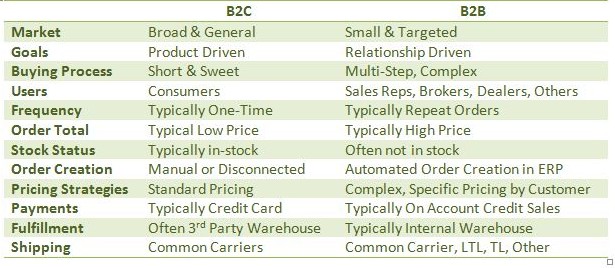Key Differences to PM'ing for B2C vs. B2B
What’s the difference between product management at a B2C role vs. B2B?
Many aspects (and skill sets) that a PM needs are exactly the same, regardless of whether the end customer is a business or a consumer. At the end of the day, your job is to set a vision, wrangle x-functional resources and launch great product(s).
But certain aspects change shift dramatically on B2B & B2C.
B2B
Typically your target market is more focused. You have fewer customers and prospects, which has some benefits. You usually have an open line of communication with several customers, or at least you should. This allows you to keep a finger on the pulse of the market and fit of your product. You can speak with a higher percentage of your revenue driving customers about what problems need solving, test solutions with them, and iterate before releasing to all.
But, you may also have a full sales, marketing, and support organization with their own thoughts about the product. This can definitely be a positive if you’re able to collaborate and retain the ability to drive the product vision, but dealing with “High Paying Client X needs this feature or they will cancel” and “We could sell all these big customers if only we had Y” is always a struggle.
Your product marketing and adoption strategy is much more straightforward. You just need to train your sales/marketing team and arm them with the tools, letting them take the lead on actually closing the revenue, without having to worry if people will never even hear about your product.
B2C
You’re dealing with a higher volume of users, which also has pros and cons. You don’t need to worry about the “Big Client X needs Y” problems, allowing you to focus on what is best for product market fit. But, you run the risk of having your qualitative analysis (user testing, customer research) with 10-20 users not being representative of the other 99.9%. I like this challenge, because it forces you to release and test multiple iterations to find which version actually moves the needle.
Also with B2C, you have a higher likelihood of actually being a user of the product you’re building. You can “eat your own dogfood” and see where the gaps are in your product, and discuss its values/shortcoming at home and with friends.
B2C & B2B - Differences


More Info :